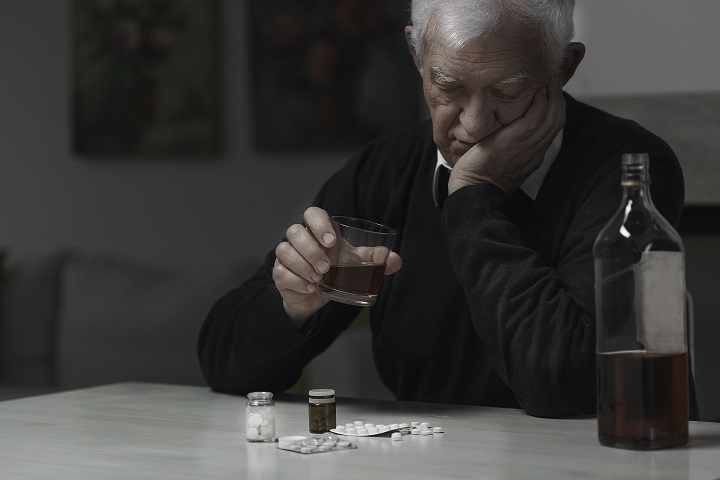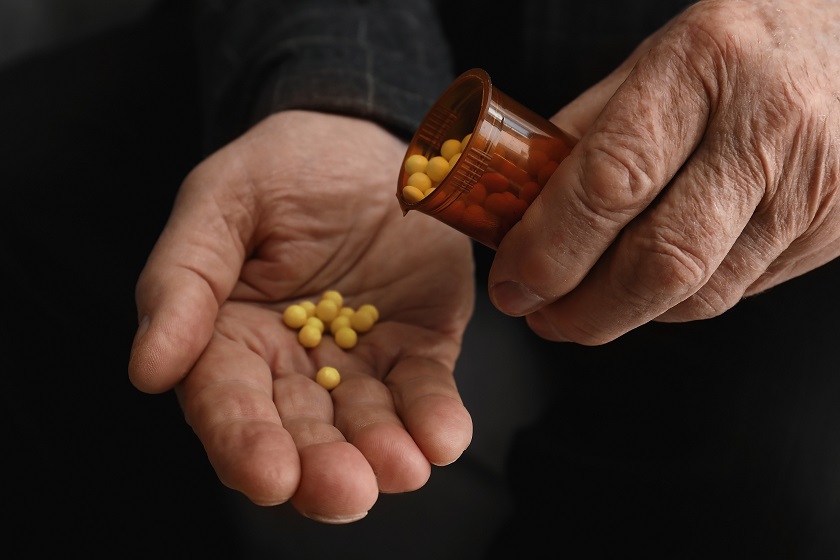Typically when people imagine an addict, they picture someone in their mid-20s. However, addiction is becoming a common problem among the elderly population. In fact, most senior citizens suffering from addiction are dependent upon alcohol or prescription pills. According to the National Institute on Alcohol Abuse and Alcoholism (NIAAA), up to 17% of adults over the age of 60 suffer from substance abuse.
Unfortunately, healthcare providers often overlook substance abuse in their elderly patients. Typically, this is due to insufficient knowledge, limited data, and hurried office visits. In addition, some elderly patients have medical or behavioral disorders that mimic the symptoms of substance use disorder. Many elderly addicts suffer from “late-onset” substance use disorder. However, some may have suffered from addiction dating back to their early adulthood. Regardless of when your addiction began, treatment is available for every addict in need.
Causes of Senior Citizen Addiction
There are multiple factors that could contribute to developing an addiction later in life. Addiction in the elderly community is caused by health issues, traumatic experiences, or life-changing events.
Factors in developing an addiction as a senior citizen:
- Death of a loved one
- Retirement
- Loss of income
- Empty nest syndrome (when children move out of the home)
- Placement in a nursing home
- Trouble sleeping
- Family conflict
- A decline in physical or mental health
- Physical pain causing the need for opioids
Senior citizens suffer from more health concerns than younger populations. Often times, adults over the age of 60 suffer from medical conditions that cause pain. Therefore, they are more likely to be prescribed habit-forming opioids. This can cause the onset of a prescription pill addiction. Additionally, alcoholism is very common among retired senior citizens. This can be due to the amount of time they spend alone or a significant decrease in finances.
Dangers of Addiction for Seniors
During youth, it is proven that individuals can consume more of a substance at once. However, as a person ages, they become more sensitive to substances such as drugs or alcohol. Over time, physical tolerance will grow while metabolism begins to slow. The slowing of an individual’s metabolism will cause them to become more sensitive to substances. As a result, this can become very dangerous for people who are used to taking high doses of a given substance.
Additionally, other health conditions can worsen the effects of addiction. For example, conditions such as diabetes, high blood pressure, or cognitive impairment can cause amplified negative effects. Anyone with health conditions will take medications to regulate their symptoms. If an individual is drinking or using drugs while taking these medications, they are prone to adverse reactions. Seniors suffering from addiction are also more susceptible to experiencing falls and injuries.
Adults over the age of 60 who drink alcohol should not exceed 3 drinks per day or 7 drinks over the course of the week. However, a portion of the elderly community consumes alcohol beyond safety limits. In fact, 45% of adults over 60 years old drink more than 7 alcoholic beverages a week. Drinking in excess as a senior can cause an array of medical complications. Specifically, congestive heart failure, liver problems, osteoporosis, stroke, and much more.
Symptoms of Addiction in Senior Citizens
As time goes on, an individual’s mental and physical health tends to deteriorate. Because of this, common signs of addiction may be more difficult to identify. However, there are still signs and symptoms of elderly addiction to look for.
Common signs of elderly drug abuse include but are not limited to:
- Issues with memory
- Sudden changes in sleeping patterns
- Unexplained bruises or chronic pain
- Depression, sadness, irritability
- Changes in diet or eating patterns
- Isolation
- Hoarding medications
- A decline in personal grooming
- Losing touch with loved ones
- Loss of interest in usual activities
If you or a loved one are displaying any of these signs, it is crucial to seek addiction treatment. Most importantly, you should always confirm that the treatment center you choose has experience in treating the elderly community.
Addiction Treatment for Seniors
With the rising amount of seniors in need of treatment, more rehab facilities have begun to offer specialized treatment programs for this demographic. Within the treatment center realm, there are mixed-age facilities as well as age- or peer-specific facilities. Treatment centers do this in order to tailor to their client’s specific needs. This is especially important for the elderly community, due to their likelihood to need extra medical attention.
Each individual will have a different process of recovery. However, inpatient treatment programs are highly recommended for seniors. This is due to their increased physical, psychological, and emotional needs. Because of the prevalence of health conditions in the elderly community, medical detox is vital. Medical detox is necessary if the individual was addicted to alcohol, benzodiazepines, or opioids – due to the severe withdrawal symptoms associated.
If you or a loved one is suffering from late-onset addiction, do not hesitate to seek treatment. Luckily, there are countless addiction rehabilitation programs with experience in treating seniors. Additionally, it is never too late to make positive changes in your life. Please give us a call today if you are struggling with the disease of addiction.







